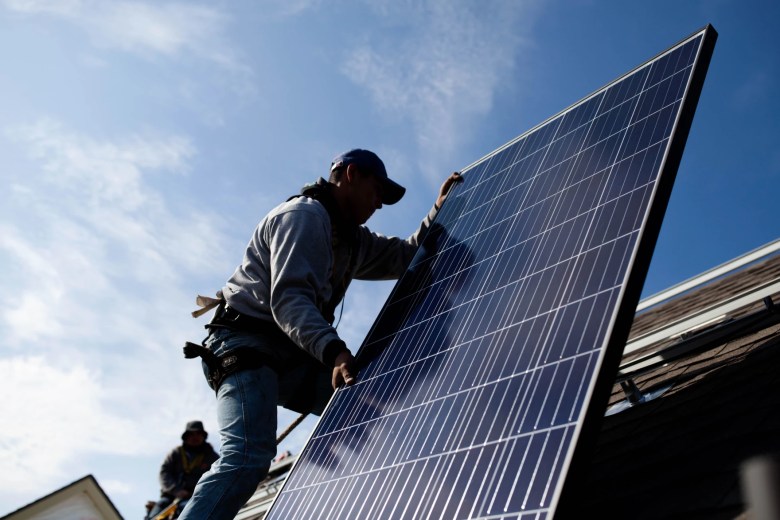For low-income solar electricity projects, Austin Energy might lose $32 million. The defeat follows the Trump government’s announcement that it will discontinue Solar for All, a clean energy initiative from the Biden administration.
The utility said the funding would have supported free solar energy and battery storage installations in 25 multifamily buildings and community centers, as well as 2,500 low-income residential houses.
There are several reasons why people favor solar energy. It reduces energy costs, combats climate change, and benefits the environment. However, not everyone has a place for rooftop panels, and even if the price is going down, many people cannot afford it.
The Environmental Protection Agency’s Solar For All awards sought to address these issues.
The initiative, which was enacted as part of the Biden administration’s Inflation Reduction Act, allocated $7 billion in government subsidies to construct affordable solar and storage facilities for communities with low and moderate incomes nationwide.
EPA Administrator Lee Zeldin declared plans on Friday to revoke that money and abolish Solar For All.
In his announcement, Zeldin questioned the program’s effectiveness and called it a grift, while framing the move as a cost-cutting measure.
He added that the recent large tax and spending bill from the Trump administration has stripped the EPA of its power to oversee Solar for All.
“We are dedicated to upholding the rule of law,” Zeldin declared.
However, low-income ratepayers and proponents of renewable energy have questioned whether it is permissible to reduce funding that has already been given to states and local governments.
Stuart Reilly, interim general manager of Austin Energy, stated in a statement, “We are disappointed by this announcement.” The goal of this grant’s local implementation was to advance energy storage and solar technology.
According to the utility, roughly 3,000 low-income Austinites would have benefited from the $32 million it earned from the program.
An estimated 20 megawatts of additional local solar panels would have been added. During periods of high energy demand, one megawatt is roughly enough electricity to power 200 households.
In the event of a power outage or when the sun wasn’t shining, the battery storage would have helped meet demand for electricity.
Since backup power could keep medical equipment operating throughout outages, aid would have been prioritized for those who were most in need.
The program’s termination would cost Texas $250 million in total.
In Texas, where almost half of consumers have difficulty paying their energy bills, Solar for All was supposed to fund a variety of initiatives.
The projects included rooftop solar projects, community solar projects that enable groups to purchase solar electricity collectively and reduce their bills, and battery storage systems that increase energy reliability by dispatching solar power when the sun isn’t shining, according to Margo Weisz, executive director of the Texas Energy Poverty Research Institute.
According to Weisz, the Solar for All projects that were approved had to lower people’s costs by at least 20%, or roughly $460 a year, and would have benefited an estimated 28,000 Texans with low to moderate incomes.
Weisz, whose group received Solar For All grants to support projects in border areas and beyond, stated that Texans are already battling in a situation where we’re forecasting energy rates to continue going up owing to rising demand on our grid.
Suits regarding the Solar for All funding’s future are virtually certain.
A federal judge’s decision in April that NGOs receiving another pot of clean energy funding from the Biden administration could not have their funding revoked was a blow to the Trump administration.
As part of the Austin Monitor’s reporting collaboration with KUT, this story was created.
Community donations enable the work of the Austin Monitors. Even though we occasionally publish on funders, we take pains to ensure transparency by keeping editorial and business activities apart. Our code of ethics is described here, and a full list of donors can be seen here.
You’re a community leader
And we are thrilled that you trust us with important, in-depth news. You are aware that local and committed watchdog reporting is essential to a healthy community. We will always be here to support you. Will you now support our nonprofit news organization and take the bold next step?









